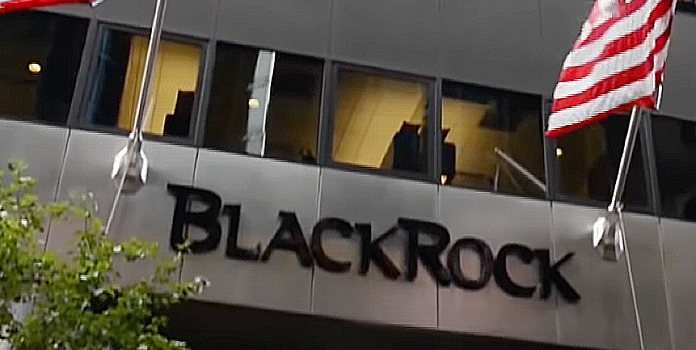(By Andy Puzder, RealClear Wire) Amid growing criticism of its environmental, social and governance investment practices, BlackRock has announced that it will offer retail investors in its largest exchange-traded fund (ETF) the opportunity to participate in its “Voting Choice” program. Open to institutional clients since January 2022, this program allows investors to choose from a limited set of options to guide BlackRock in voting their shares. While perhaps an effective PR tool, Voting Choice is little more than a ruse that neither empowers investors nor diminishes BlackRock’s power to impose its ESG goals on American businesses.
BlackRock’s equity index has about $4.5 trillion in assets under management (AUM), empowering it to cast a whopping 10% of the shareholder votes for the entire S&P 500. As BlackRock CEO Larry Fink has admitted, BlackRock uses that formidable power to “force behaviors” on the companies in which it invests.
For example, in his 2020 annual letter to CEOs, Fink stated that BlackRock would use both “disclosures” and “engagement” to ascertain whether companies had operating plans that assume the Paris Agreement’s climate goals are “fully realized.” He cautioned that in 2019, “BlackRock voted against or withheld votes from 4,800 directors at 2,700 different companies” and warned that it would be “increasingly disposed to vote against management and board directors” who failed to perform as instructed.
People noticed.
In August 2022, 19 red state attorneys general wrote to Fink informing him that proxy voting to advance ESG or other ideological causes violated their laws governing fiduciary duties. Ten states passed laws making it clear that such proxy voting is a breach of fiduciary duty. The Voting Choice program is an attempt to create a defense against fiduciary-malfeasance claims by making it appear that BlackRock has seen the errors of its ways and is returning proxy-voting power to investors. But that simply is not the case.
As of March 31, $2.1 trillion of BlackRock’s $4.5 trillion equity index AUM was eligible for Voting Choice. Only 26% was participating. The program’s recent expansion to certain retail investors will slightly increase the eligible amount to $2.3 trillion. If the participation percentage holds, Voting Choice would reduce BlackRock’s discretionary voting power from about 10% of all votes cast for S&P 500 companies to a still-massive 8.7%. That’s assuming no participants choose the option “to continue to vote according to the BlackRock Investment Stewardship policy,” which obviously does nothing to reduce BlackRock’s discretionary voting power.
The program does offer investors the additional option to choose from third-party voting policies offered by proxy-advisor giants ISS and Glass Lewis, both strong ESG supporters themselves. Actual voting choice – voting the shares individually – does not appear to be an option in the expanded program but would be irrelevant even if it were.
BlackRock is expanding the program to include retail investors in its S&P 500 ETF – with 500 annual shareholder meetings involving thousands of director nominees and shareholder resolutions. It is unlikely that any individuals would assume the burden or have the resources to vote intelligently on every director or resolution even if they had the choice.
The program does offer one arguably non-ESG-supporting option to vote with management, which often (not always) opposes ESG initiatives. But management remains subject to BlackRock’s behind-the-scenes ESG pressure diminishing the value of that option. In his 2020 letter to CEOs, Fink called this pressure “engagement.” More formally, BlackRock calls it “investment stewardship.” Both terms are euphemisms for compulsion – with ESG at the forefront.
According to BlackRock, its “stewardship” and “investment” teams work together to provide corporate management with “insight on environmental, social, and governance (ESG) considerations.” Its goal is to include “the assessment and integration of environmental and social issues, within an investment context” and “hold directors accountable for their action or inaction.” That sounds a lot like what BlackRock has been doing with proxy voting.
But “stewardship” is both more effective and more insidious than proxy voting, as it occurs in C suite conference rooms and on Zoom calls, beyond the purview of both investors and those who would protect their interests. And, make no mistake, “investment stewardship” is where BlackRock’s real power resides. It’s the “investment stewardship” team that votes the shares BlackRock holds – and the CEOs of those companies know it.
Wiser states will legislatively mandate disclosure of investment-stewardship meetings and make it clear that pressuring companies to support ESG or other ideological objectives over profits is itself a breach of fiduciary duties, even if informal.
In any event, it is very unlikely that red states will allow BlackRock to use its so-called Voting Choice ruse as a shortcut around its fiduciary obligations. Legislators, attorneys general, and state financial officers are following these issues closely. And as the elected stewards of their states’ (and taxpayers’) investments, they are holding BlackRock and other ESG supporting firms accountable.

